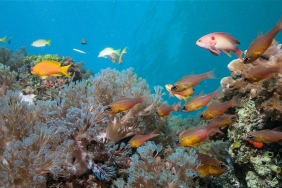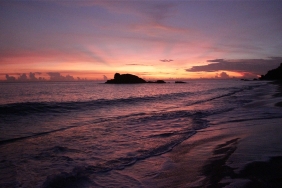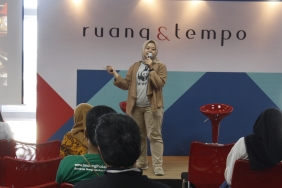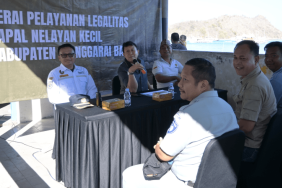MAINTAINING THE CONTINUATION OF GLASS EEL FISHERIES IN INDONESIA
The High Demand of Glass Eel
At the mouth of the Cimandiri River, during the lean season each Fisherman can get between 20-40 grams of eel per night and 50-100 grams per night during the peak season. The Fishermen's catch will be temporarily stored in Collectors before being sent to the company.
Mr. Yayan Supendi and hundreds of other Fishermen spend all night catch eel seeds, with only a few hours to rest. When entering the peak season (October - April) it can reach approximately 300-400 Fishermen.
"The demand of glass eel seeds increasing from 2009 until now," said Mr. Yayan Supendi, a Fisherman and Collector in Tegal Buleud, Sukabumi Regency, West Java. "We want this eel seed to be sustainable for the future because it has become the livelihood of Fishermen," he added.
The Importance of Regulation for Glass Eel Fisheries Improvement
This study of glass eel seeds sources was carried out by collecting various information through interviews and other secondary data obtained from all stakeholders involved, including Fishermen, small Collectors, large Collectors, companies, NGOs, and the government.
The government has issued regulations to support glass eel management, that is Peraturan Menteri No. 19 in 2012 regarding the Prohibition of the Export of Eel Seeds from the Territory of the Indonesian Republic to the Outside (for the export prohibition of eels under 150 g).
It is also supported by Peraturan Bupati Sukabumi No. 25 in 2018 concerning Management and Protection of Eels Resources. And Circular Letter of the Regent of Sukabumi on 29 March 2018, about production recording and the obligation to restock eels broodstock for business sector.
In public consultation, the report of eel seed fisheries practices referring to the Marine Stewardship Council (MSC) 27 August 2018. The next steps that can be taken to improve eel fisheries management are to encourage a Ministerial Decree regarding the protection status of eels by the Directorate General of Marine Spatial Management through the IFISH-FAO Project program.
The government regulations synergized with the commitment of fisheries businesses can take steps towards preserving eels in nature, in order to support the lives of our coastal Fishermen, starting from West Java.





